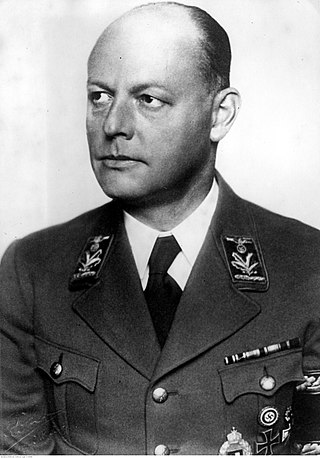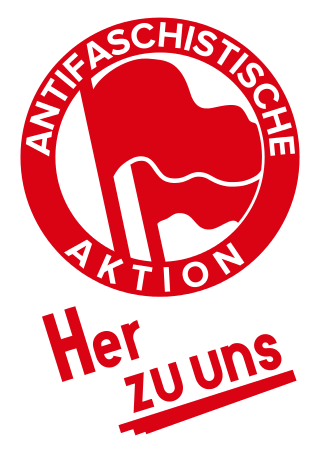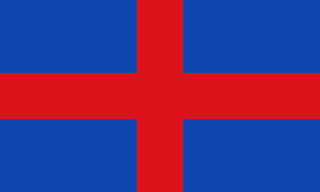
The Free Democratic Party is a liberal political party in Germany.

The Homeland, previously known as the National Democratic Party of Germany, is a far-right Neo-Nazi and ultranationalist political party in Germany.

The Deutsche Reichspartei (DRP), also known as the German Empire Party or German Imperial Party, was a nationalist, far-right, and later neo-Nazi political party in West Germany. It was founded in 1950 from the German Right Party, which had been set up in Lower Saxony in 1946 and had five members in the first Bundestag, and from which it took the name. Its biggest success and only major breakthrough came in the 1959 Rhineland-Palatinate regional election, when it sent a deputy to the assembly.

Reinhold Maier was a German politician and the leader of the FDP from 1957–1960. From 1946 to 1952 he was Minister President of Württemberg-Baden and then the 1st Minister President of the new state of Baden-Württemberg until 1953.

Georg Paul Erich Hilgenfeldt was a high Nazi Party government official.

Antifaschistische Aktion was a militant anti-fascist organisation in the Weimar Republic started by members of the Communist Party of Germany (KPD) that existed from 1932 to 1933. It was primarily active as a KPD campaign during the July 1932 German federal election and the November 1932 German federal election and was described by the KPD as a "red united front under the leadership of the only anti-fascist party, the KPD."

The People's State of Hesse was one of the constituent states of Germany from 1918 to 1945, as the successor to the Grand Duchy of Hesse after the defeat of the German Empire in World War I, on the territory of the current German states of Hesse and the Rhineland-Palatinate. The State was established after Grand Duke Ernest Louis was deposed on 9 November 1918. The term "People's State" referred to the fact that the new state was a Republic and was used in the same manner as the term Free State, which was employed by most of the other German States in this period.

The Republic of Baden was a German state that existed during the time of the Weimar Republic, formed after the abolition of the Grand Duchy of Baden in 1918. It is now part of the modern German state of Baden-Württemberg.

The Free State of Oldenburg was a federated state that existed during the Weimar Republic and Nazi Germany. It was established in 1918 following the abdication of the Grand Duke Frederick Augustus II after the German Revolution and was abolished by the Allies following the Second World War.

Walter Friedrich Julius Köhler was a German Nazi Party politician who served as the Minister President of Baden in Nazi Germany from 1933 to 1945.

The Association of Persecutees of the Nazi Regime – Federation of Antifascists (VVN-BdA) is a German political confederation founded in 1947 and based in Berlin. The VVN-BdA, formerly the VVN, emerged from victims' associations in Germany founded by political opponents to Nazism after the Second World War and the end of the Nazi rule in Germany.
Adolf Bauser was a German teacher, member of the Reichstag for the Reich Party for Civil Rights and Deflation and delegate for the Christian Democratic Union in the Landtag of Württemberg-Baden.

Julius Christian Mergenthaler, was a Nazi German politician, member of the Reichstag and Württemberg Landtag, Ministerpräsident of Württemberg and Culture Minister.
August Haußleiter was a German politician and journalist. After his exclusion from the Bavarian Christian Social Union in 1949 he spent three decades as a right-wing political activist, on many occasions positioned beyond the frontiers of West Germany's consensual political mainstream. During the 1980s he remained politically active, but now as a somewhat unconventional member of the German Green party. He is also the mentor of the Finnish Greens (@vihreat)

Frieda Unger was a German activist and politician who served as a member of the Parliament ("Landtag") of Baden. Her candidacy for the national parliament ("Reichstag") was not successful, however.
The 1919 Baden state election was held on 5 January 1919 to elect the 107 members of the Baden Landtag. This was the first election in Baden to extend voting rights to women.
The 1921 Baden state election was held on 30 October 1921 to elect the 86 members of the Landtag of the Republic of Baden.
The 1929 Baden state election was held on 27 October 1929 to elect the 88 members of the Landtag of the Republic of Baden.
Willy Marschler was a German Nazi Party politician who served as one of the first two Nazis to hold ministerial office in a German State. He went on to be the Minister-President of Thuringia through most of the Third Reich.
Angela Zigahl was a German teacher and politician who served in the Landtag of Prussia from 1925 until 1933. A member of the Centre Party, she represented the Oppeln constituency. Following World War II, Zigahl was a member of the Sonne Commission, an American-led body which sought to resolve the post-war refugee crisis in West Germany.











